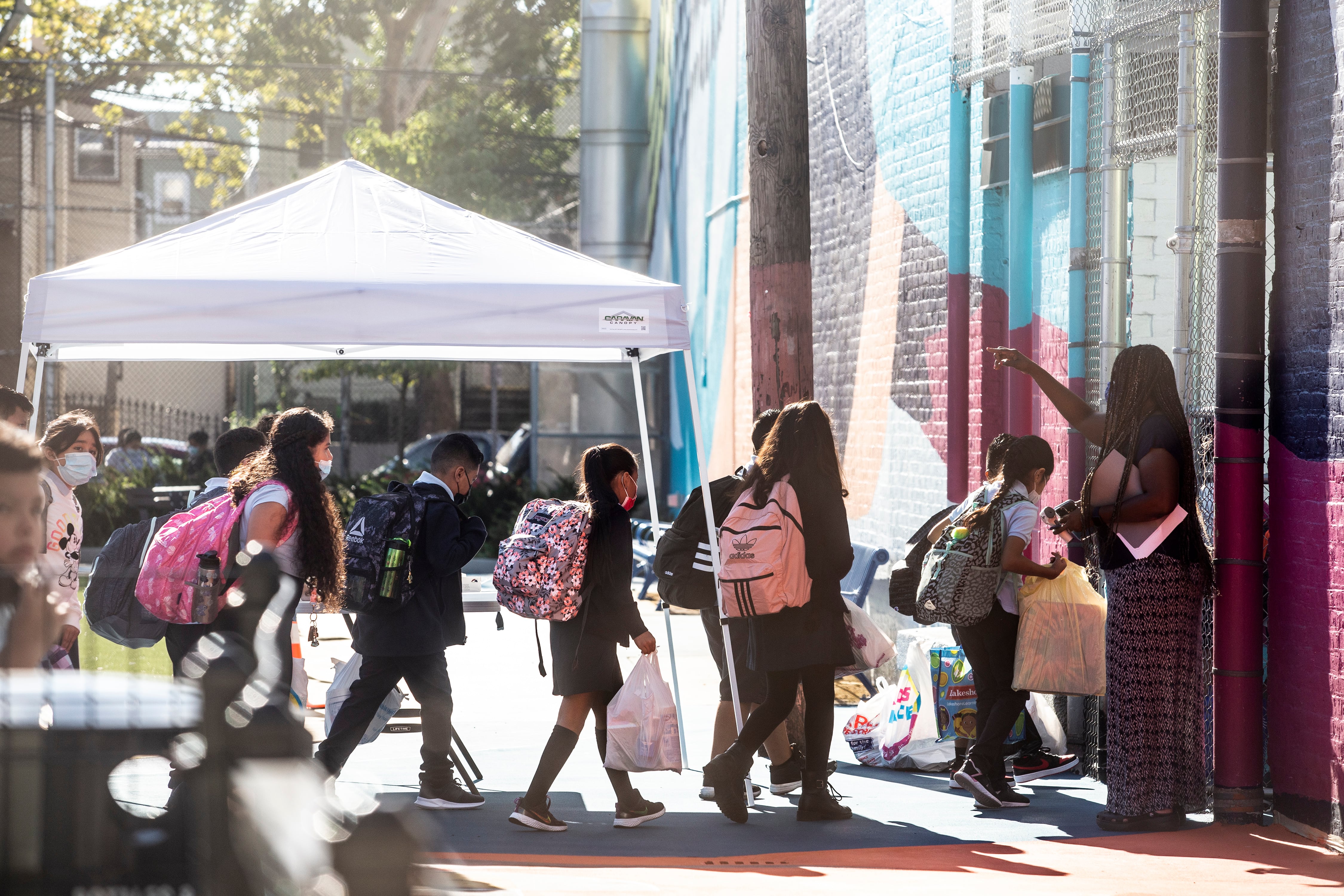The Newark Board of Education approved a $1.3 billion 2023-24 budget on Wednesday that includes an increase in funding to expand teaching positions, as well as an increase in payments to charter schools.
The spending plan for Newark Public Schools also includes increased transportation spending, adding an additional grade level to schools, a prekindergarten expansion in several schools, and more funding for students with disabilities and English language learners.
Residents will be able to vote on the budget in approximately four weeks during this year’s school board election on April 25.
The budget is designed to support Superintendent Roger León’s 10-year plan, which is known as “The Next Decade” and is in its third year. The district said it expects to receive more than 38,000 students next school year across its 62 schools. León said they plan to use funds to “aggressively” tackle learning loss driven by the pandemic by continuing to support programs such as tutoring.
The budget also includes funding for the district to provide new Chromebooks for certain grades and renovations to classrooms and other parts of school facilities.
In the budget, roughly 86% of the district’s funding next year would come from a projected $1.2 billion in state aid included in Gov. Phil Murphy’s budget proposal released earlier this month. That represents an additional $114 million in state aid, or an increase of about 11%, from last year. State lawmakers have until June 30 to approve the governor’s budget.
The district’s budget is supplemented by $138.3 million from local property taxes, which remains the same for the third year in a row. It also includes an extra $44 million in combined revenue from the district’s excess fund balance of $33.9 million, as well as separate federal and local revenue of $10.1 million anticipated for the upcoming school year.
Despite the increase in state aid, Newark remains $27.7 million short of the budget recommended by the formula in New Jersey’s School Funding Reform Act, said Valerie Wilson, the district’s school business administrator. Regardless, Newark taxpayers will see no increase on their property taxes for the third year in a row under the 2023-24 budget, but Wilson warned that will be an exception rather than the norm moving forward.
The district has until October 2024 to use up its remaining federal COVID relief, which the district has used on technology, teaching and learning, security, and to improve aging facilities. Board member Vereliz Santana called the federal funding a “once in a generation” opportunity that has helped Newark schools improve and recover from funding deficiencies experienced when the district was under state control.
Budget prioritizes tutoring and technology
District leaders said they will continue working on bringing students up to speed following the pandemic and are placing extra emphasis on high-dosage tutoring — or one-to-one tutoring at least three times a week — next school year.
León said he expects to see more students attending tutoring (after and before school) in the next school year.
“High dosage tutoring is extremely important towards accomplishing the goals of all of the deficiencies that students may have because of the learning that they have lost,” León said.
The budget includes León’s plans to spend an extra $1 million to expand pre-K at 11 elementary schools, and another $3.2 million to increase the number of grade levels in eight schools.
León also said his team plans to allocate funds for wraparound services for students in pre-K to grade 3 and provide more summer school programming for middle school students and eighth graders transitioning into high school.
Students in kindergarten, fifth, and ninth grade will be issued new Chromebooks next school year as part of the district’s continuation of a one-to-one Chromebook initiative for all students.
Newark hiring more aides for students with autism
The budget’s largest spending category is $470.8 million set aside for salaries, including the hiring of new teachers, aides, and support staff.
Newark expects to open 220 additional instructional positions next school year consisting of 141 new teachers over last year’s plan. The positions include the addition of 46 aides to help with its autistic students (as Newark experiences a spike in autism cases), an extra five positions for administrative positions, and another 28 for school support.
In total, the district is budgeting for 3,084 teacher positions, 315 positions for aides, 377 administrative positions, and 782 positions for school support.
At the start of this school year, the district welcomed 600 new teachers, but from May to October of last year, 325 employees resigned, according to data from the Newark Teachers Union.
The budget includes $154.2 million to cover increased health benefits. It also includes $870,000 for travel expenses and $17.4 million for professional development, the maximum allowed expenditures for these categories.
Charter payments to rise by over $11 million
Charter school payments make up the district’s second largest expenditure at $353.8 million, an $11.8 million increase from last year.
The state approved the expansion of two Newark charter schools this year allowing the schools to increase enrollment at their campuses by a combined 532 seats.
According to state estimates, the district should budget for $384 million in charter aid. But Newark schools “feels confident” the budgeted amount will cover charter expenses, Wilson said. If costs rise, the district could face an additional $30 million in cuts to the budget, Wilson added.
In August, the board of education spent just over $7 million on a contract with 20 transportation companies to service 126 routes to schools. In January, the district launched a monthly bus pass for its high school students.
Newark focusing on renovations, English learners
Newark will open the Nelson Mandela Elementary School this fall, which will be located at the former University Heights charter school location, and will enroll students in pre-K-4 grade in its first year. The new school is part of the district’s broader plan to open more schools and expand others.
In addition to that new school, the district plans to upgrade its schools, purchase new classroom furniture, and begin renovations in buildings, cafeterias and other school areas by committing an extra $26 million this year for the work.
Another $9 million this year is set aside for facilities initiatives such as renovations for the pool at the Chancellor Avenue annex, across the street from Weequahic High School and the West Side High School Greenhouse.
Additionally, the district continues to work on installing contactless water fountains across all its schools. Last October, the district approved a $5 million contract to install them district-wide.
Roughly 20% of Newark students have disabilities and require additional support such as in-classroom aides and speech therapy services.
The district projects students with disabilities will continue to grow in the district, and are allocating an extra $1.9 million to hire 30 special education teachers. An additional $1.5 is set aside to hire 46 full time employees to support these students.
English language learners make up 25% of the district’s total population and are expected to grow as the city’s demographics change over time. The district is committing an extra $2.2 million to hire 36 bilingual teachers, and an additional $1.6 million to hire 26 ESL teachers.
Additionally, León is launching a newcomers next school year to provide students personalized support to learn and grow within the district and community.
Jessie Gómez is a reporter for Chalkbeat Newark, covering public education in the city. Contact Jessie at jgomez@chalkbeat.org.






